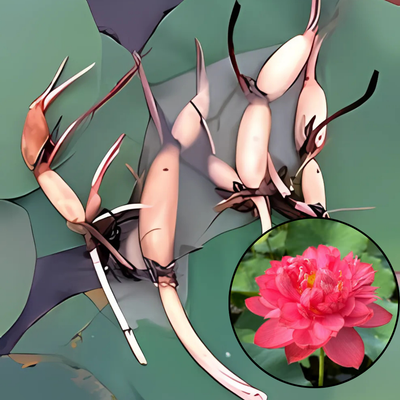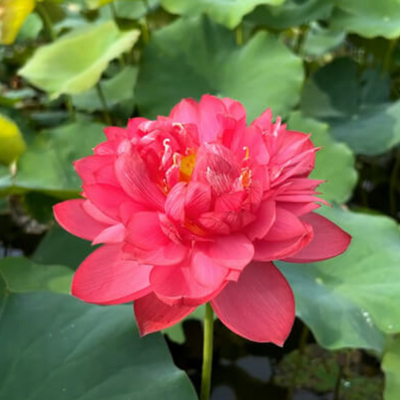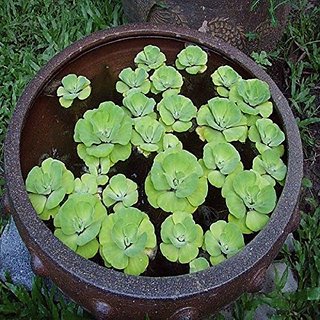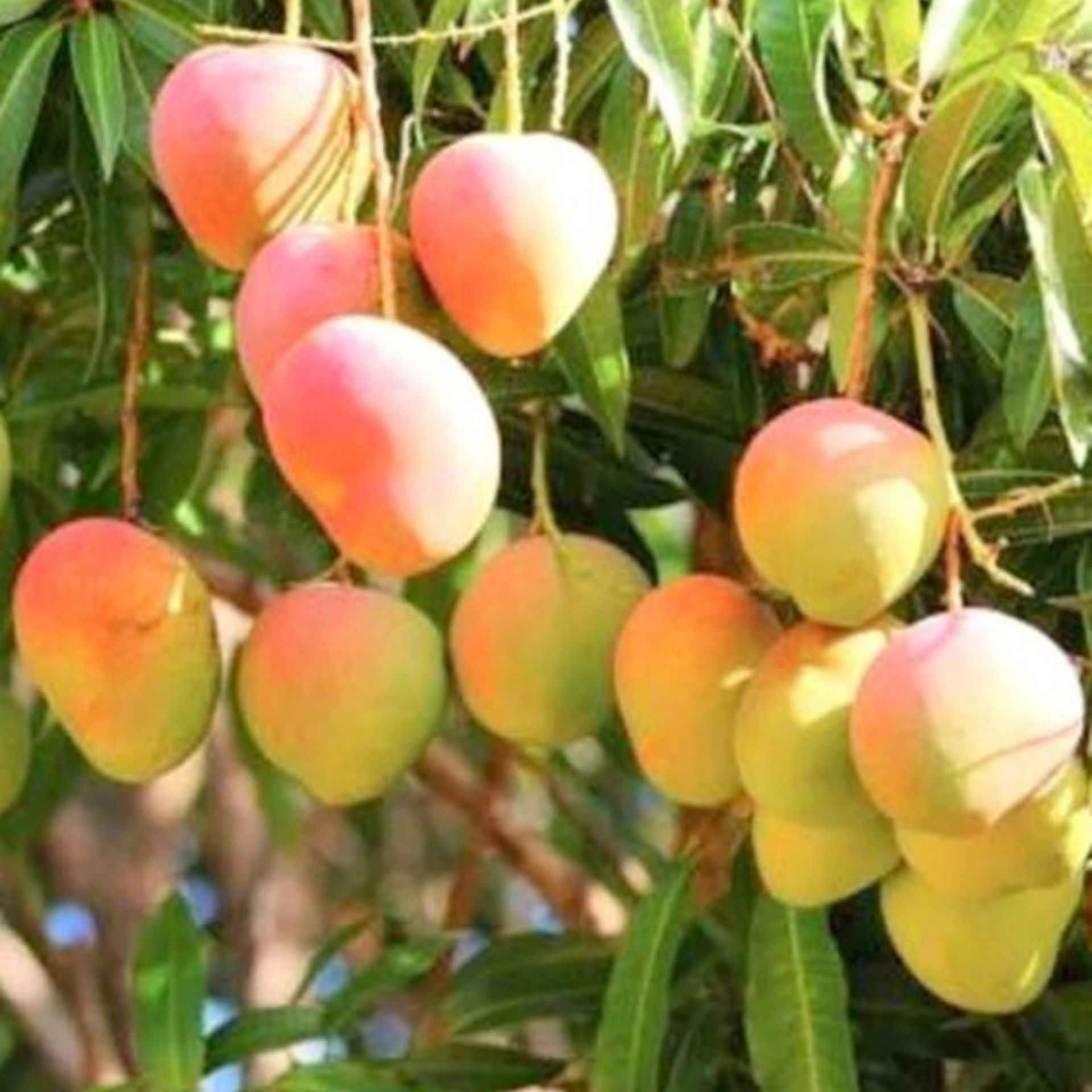
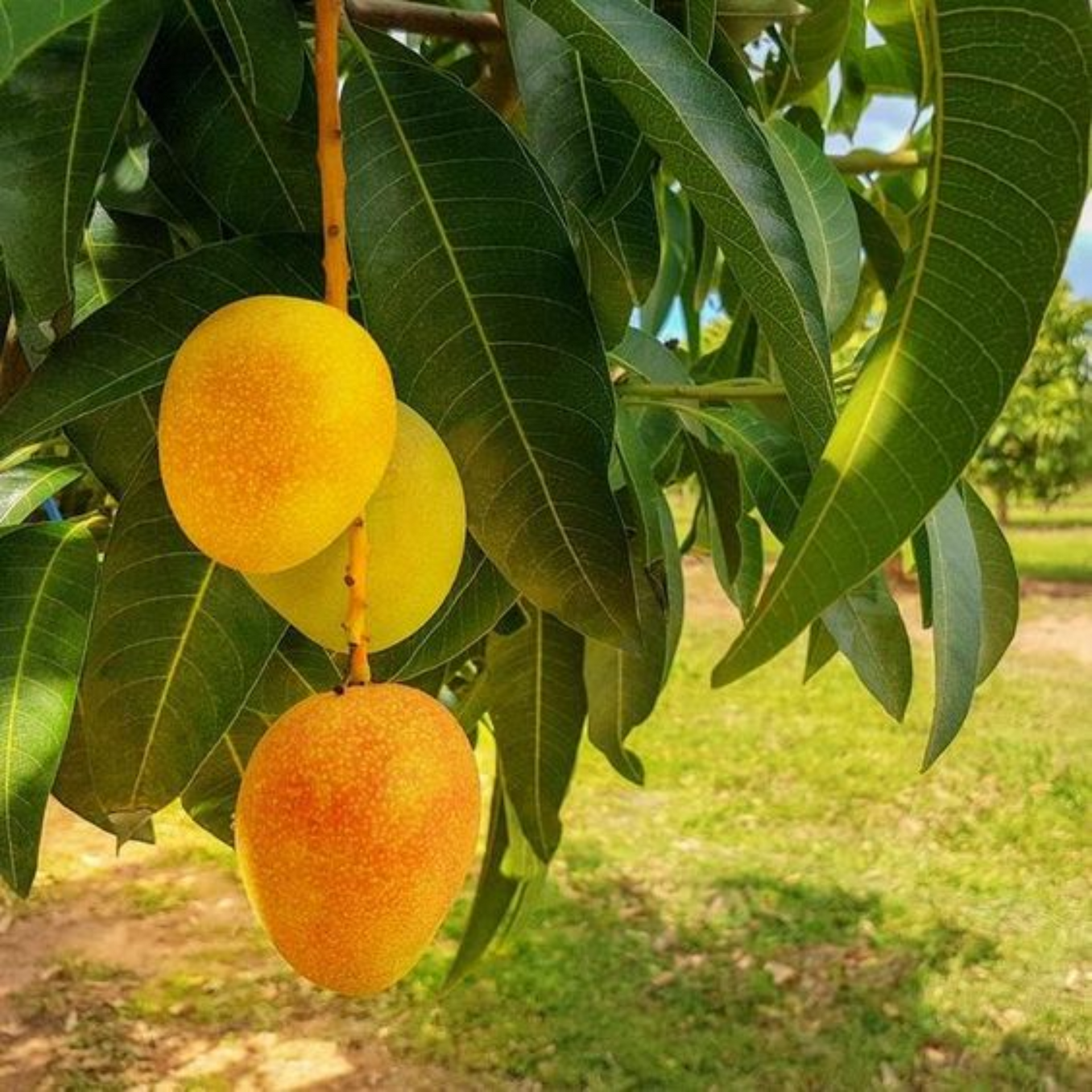
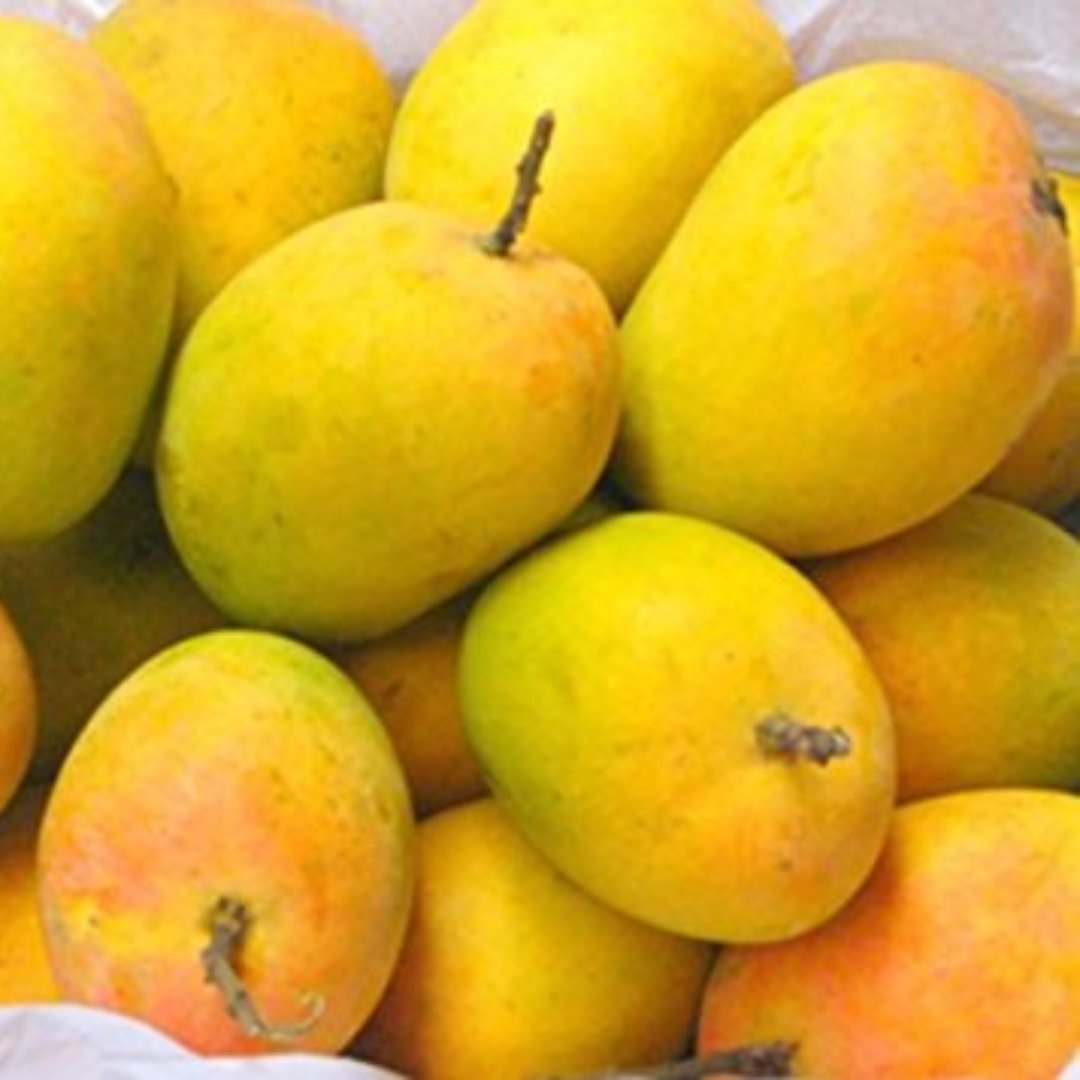
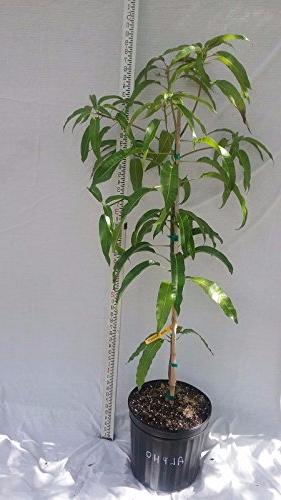
Exclusive Alphanso (Devgad Hapus) Mango Live Plant
Guaranteed Safe Checkout
Unveiling the Majesty of Alphonso
Mango Plants: A Tropical Treasure
About Alphonso Mango Plant
In the sun-kissed realms of tropical orchards, there exists a treasure that captures the essence of summer in its golden embrace - the Alphonso mango plant (Mangifera indica). Revered as the "King of Mangoes," this regal fruit-bearing tree is celebrated not only for its luscious taste but also for its rich cultural and historical significance. Let's embark on a journey through the world of Alphonso mango plants, exploring their origin, characteristics, cultivation, and the sweet indulgence they bring to the table.
A Royal Heritage
- The story of the Alphonso mango traces back to the western coasts of India, particularly the state of Maharashtra.
- Named after the Portuguese general Afonso de Albuquerque, who established colonies in India, the Alphonso mango plant embodies a legacy that spans centuries.
- Its lineage can be traced to the Ratnagiri and Devgad regions of India, where the tropical climate, rich soil, and proximity to the Arabian Sea provide the perfect nurturing environment for this exquisite fruit.
Botanical Charms
- The Alphonso mango tree is a marvel of botanical beauty.
- With an average height of 10 to 15 meters, it boasts a dense and evergreen canopy that provides both ample shade and a haven for the delicate blossoms.
- The leaves are elliptical and leathery, forming a lush backdrop for the main attraction - the mango fruit itself.
- The fruit is small to medium-sized, with an unmistakable ovate shape and a distinctive small, flat pit at its core.
- The skin, varying in hues from green to vibrant yellow, cloaks the succulent, saffron-hued flesh beneath.
Cultivation Secrets
- Cultivating Alphonso mango plants requires a meticulous blend of nature and human intervention.
- These trees thrive in deep, well-drained soils with excellent water retention capacity.
- The tropical climate of their native regions, characterized by a distinct wet and dry season, is crucial for their growth.
- The monsoon rains provide the essential water supply for flowering, while the dry season facilitates the fruiting process.
Cultural Significance
- Beyond its gastronomic delight, the Alphonso mango holds cultural and economic significance in the regions it calls home.
- Its arrival each year marks the onset of the summer season and the joyous festival of Holi.
- The mango is deeply intertwined with Indian mythology, symbolizing love and fertility.
- This regal fruit has also played a role in diplomacy, with India gifting Alphonso mangoes to foreign dignitaries as a gesture of goodwill.
Gastronomic Bliss
- The Alphonso mango's reputation as the "King of Mangoes" is well-deserved, owing to its unparalleled flavor profile.
- Its rich, buttery texture and distinct aroma set it apart from its counterparts.
- The balance of sweetness and tanginess is a true delight for the taste buds.
- From being savored as slices to starring in chutneys, ice creams, and beverages, the Alphonso mango reigns supreme in the culinary world.
Preservation Efforts
- In recent years, the Alphonso mango plant has faced challenges due to climate change and disease outbreaks.
- Efforts to preserve this horticultural treasure include research on disease-resistant varieties, sustainable cultivation practices, and safeguarding its natural habitat.
Cultivating Sweet Success: A Guide to Growing
Alphonso Mango Plants
When it comes to the realm of tropical fruits, few can rival the exquisite allure and sublime taste of the Alphonso mango. Often hailed as the "King of Mangoes," the Alphonso mango (Mangifera indica) is renowned for its delectable sweetness, distinct aroma, and smooth, buttery texture. If you're a mango aficionado or simply want to embark on a rewarding horticultural journey, learning how to grow Alphonso mango plants can be an incredibly fulfilling endeavor.
Choosing the Right Location:
- Before delving into the intricacies of cultivation, selecting the right location is paramount.
- Alphonso mango plants thrive in tropical and subtropical climates, where they can bask in full sunlight.
- Choose a well-draining spot with ample space to accommodate the plant's growth, keeping in mind that these trees can reach heights of up to 40 feet.
Preparation and Planting:
Soil:
Alphonso mango plants flourish in well-draining, loamy soil. Ensure that the soil pH falls within the range of 6.0 to 7.5. Amending the soil with organic matter, such as compost, can enhance its fertility and structure.
Planting:
The ideal time for planting is during the warm months, as these plants are sensitive to cold temperatures. Dig a hole that is twice as wide and deep as the root ball of the plant. Make sure the top of the root ball is level with the soil around it before carefully inserting the plant into the hole.
Nurturing and Care:
Watering:
While Alphonso mango plants appreciate regular watering, it's crucial not to let the roots sit in waterlogged soil. A consistent watering schedule, especially during the flowering and fruit-setting stages, is essential. However, reduce watering during the dormant winter months.
Fertilization:
Providing your mango plant with a balanced fertilizer can encourage healthy growth and fruit production. Apply a nitrogen-rich fertilizer during the growing season, and switch to a phosphorus and potassium-rich fertilizer when flowering begins.
Pruning:
Pruning helps shape the plant and encourages optimal fruiting. Remove dead or diseased branches, and thin out excessive growth to allow sunlight to penetrate the canopy.
Pest and Disease Management:
Vigilance against pests and diseases is crucial for a successful harvest:
Pests:
Keep an eye out for common mango pests such as aphids, mealybugs, and mango fruit flies. Regularly inspect your plant and introduce beneficial insects if necessary.
Diseases:
Alphonso mango plants can be susceptible to fungal diseases like anthracnose and powdery mildew. Proper spacing, good airflow, and applying appropriate fungicides can help prevent these issues.
Harvesting and Enjoying:
- The ultimate reward of your hard work arrives with the harvest.
- Alphonso mangoes typically mature in late spring to early summer, depending on your specific climate.
- To ensure optimal sweetness and flavor, allow the mangoes to ripen on the tree. A gentle twist will detach ripe fruit from the stem.

